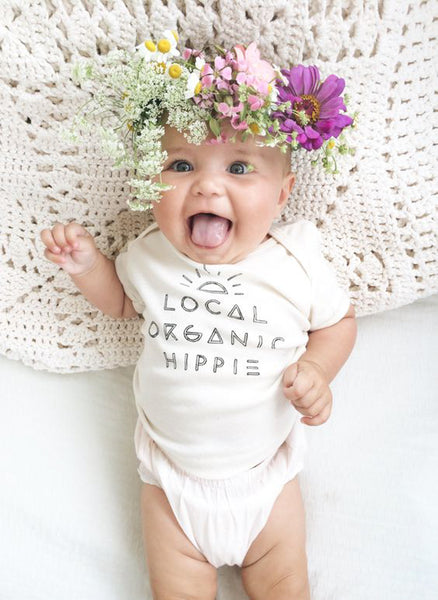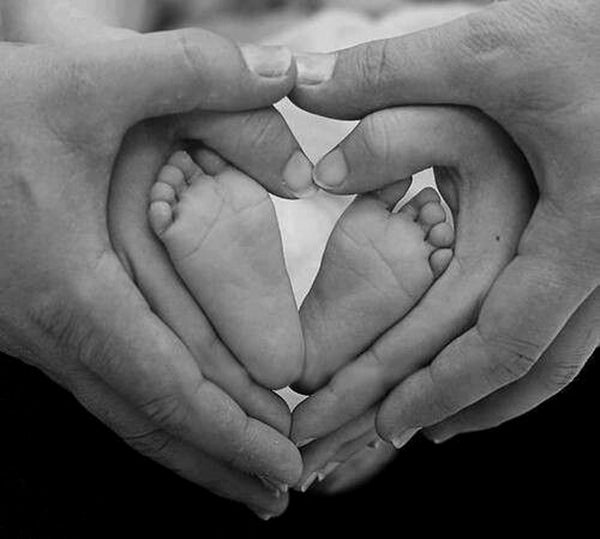- No products in the cart.
How Your Baby Benefits From Organic Bedding? How Your Baby Benefits From Organic Bedding?
14
May

If you hear the word “organic” in the context of a conversation about babies, the first thing that probably comes to mind is food. What your baby eats is not the only source of possible environmental contaminants. Did you know that crib mattresses are covered in a PVC or Vinyl coatings, which is now known for containing harmful phthalates? You don’t want your baby sleeping on – and breathing in – any of these kinds of toxins.
Protecting the Most Vulnerable

Parents want to give their babies the best possible start in life, and minimizing their exposure to harmful substances in their environment is one way to do that. It has long been known that babies’ skin is more sensitive than adults’. Conventional bedding made from non-organic materials may increase the likelihood that babies will experience rashes, dryness, and other adverse effects from environmental contaminants. Given the number of hours infants spend sleeping, particularly in the first few months, they also have a good deal more exposure to their bedding than adults do. Purchasing certified organic mattresses, sheets, blankets and pillows can help to limit your baby’s exposure to airborne toxins.
Benefits of organic bedding
Safer Breathing:
Many typical products (especially mattresses) contain chemicals that are known carcinogens, hormone disruptors, and other irritants. By choosing organic, or other non-toxic materials, you can avoid these and provide your child with cleaner air to breath while they sleep (12+ hrs a day).
Moisture Absorbing:
Most organic fabrics are superior for absorbing moisture and humidity, aiding in more comfortable and sound sleep.
Reduced Toxin Exposure:
Organic baby bedding is important because your baby deserves the best and safest start in life. A baby's lungs and digestive systems are still developing in the months after birth, and it is important to create and maintain an organic and toxin-free environment for your child's development. Since your baby will be spending an extraordinary amount of time sleeping, there's no better way to ensure this safe environment than through the use of organic baby bedding.
Reduced Environmental Impact:
Materials like organic flax is grown from natural, non genetically modified seeds and no pesticides or other harsh chemicals are used in the process of growing or weeding. The end result provides biologically diverse agriculture and workers with a safe and healthy environment.
From Crop to Crib

Like all other products, baby bedding must be officially certified organic in order to ensure that it’s been produced without pesticides. This isn’t all there is to organic bedding, however. The processes of organic farming, harvesting, and production have other positive impacts on both producers and consumers. Using only natural pest-control measures protects those who harvest and process the materials that go into your baby’s bedding from exposure to pesticides. Natural fertilizers and crop-rotation strategies produce healthier, more productive soil. Organic farming methods are more consistent with the earth’s natural cycles and processes, so buying certified organic bedding for your little one benefits the environment as well as your family.
As with any other product you buy for your infant, you should research your options carefully before selecting bedding for your child. If keeping your baby’s environment as natural as possible is a priority for your family, organic may be the best way to go.
Worth the Cost?

The main drawback to organic bedding is that it is costlier than conventional alternatives. While price doesn’t necessarily dictate the quality of a product, you are likely to spend a bit more if you buy organic. Cost is a relative factor, however. It can be argued that the long-term costs of compromising a child’s health and the well-being of the planet are far greater than the short-term expenditure involved in purchasing “clean” bedding for your child.
Sources Peanut Butter and Whine/Green Living
Check out our line of woven flax linen baby and toddler sleep essentials. We use only organic non bleached linen fabrics and raw flax fibers made from flax plant grown organically in Europe.
Your baby's sleep is precious #LETSMAKEITWHOLESOME

If you hear the word “organic” in the context of a conversation about babies, the first thing that probably comes to mind is food. What your baby eats is not the only source of possible environmental contaminants. Did you know that crib mattresses are covered in a PVC or Vinyl coatings, which is now known for containing harmful phthalates? You don’t want your baby sleeping on – and breathing in – any of these kinds of toxins.
Protecting the Most Vulnerable

Parents want to give their babies the best possible start in life, and minimizing their exposure to harmful substances in their environment is one way to do that. It has long been known that babies’ skin is more sensitive than adults’. Conventional bedding made from non-organic materials may increase the likelihood that babies will experience rashes, dryness, and other adverse effects from environmental contaminants. Given the number of hours infants spend sleeping, particularly in the first few months, they also have a good deal more exposure to their bedding than adults do. Purchasing certified organic mattresses, sheets, blankets and pillows can help to limit your baby’s exposure to airborne toxins.
Benefits of organic bedding
Safer Breathing:
Many typical products (especially mattresses) contain chemicals that are known carcinogens, hormone disruptors, and other irritants. By choosing organic, or other non-toxic materials, you can avoid these and provide your child with cleaner air to breath while they sleep (12+ hrs a day).
Moisture Absorbing:
Most organic fabrics are superior for absorbing moisture and humidity, aiding in more comfortable and sound sleep.
Reduced Toxin Exposure:
Organic baby bedding is important because your baby deserves the best and safest start in life. A baby's lungs and digestive systems are still developing in the months after birth, and it is important to create and maintain an organic and toxin-free environment for your child's development. Since your baby will be spending an extraordinary amount of time sleeping, there's no better way to ensure this safe environment than through the use of organic baby bedding.
Reduced Environmental Impact:
Materials like organic flax is grown from natural, non genetically modified seeds and no pesticides or other harsh chemicals are used in the process of growing or weeding. The end result provides biologically diverse agriculture and workers with a safe and healthy environment.
From Crop to Crib

Like all other products, baby bedding must be officially certified organic in order to ensure that it’s been produced without pesticides. This isn’t all there is to organic bedding, however. The processes of organic farming, harvesting, and production have other positive impacts on both producers and consumers. Using only natural pest-control measures protects those who harvest and process the materials that go into your baby’s bedding from exposure to pesticides. Natural fertilizers and crop-rotation strategies produce healthier, more productive soil. Organic farming methods are more consistent with the earth’s natural cycles and processes, so buying certified organic bedding for your little one benefits the environment as well as your family.
As with any other product you buy for your infant, you should research your options carefully before selecting bedding for your child. If keeping your baby’s environment as natural as possible is a priority for your family, organic may be the best way to go.
Worth the Cost?

The main drawback to organic bedding is that it is costlier than conventional alternatives. While price doesn’t necessarily dictate the quality of a product, you are likely to spend a bit more if you buy organic. Cost is a relative factor, however. It can be argued that the long-term costs of compromising a child’s health and the well-being of the planet are far greater than the short-term expenditure involved in purchasing “clean” bedding for your child.
Sources Peanut Butter and Whine/Green Living
Check out our line of woven flax linen baby and toddler sleep essentials. We use only organic non bleached linen fabrics and raw flax fibers made from flax plant grown organically in Europe.
Your baby's sleep is precious #LETSMAKEITWHOLESOME

